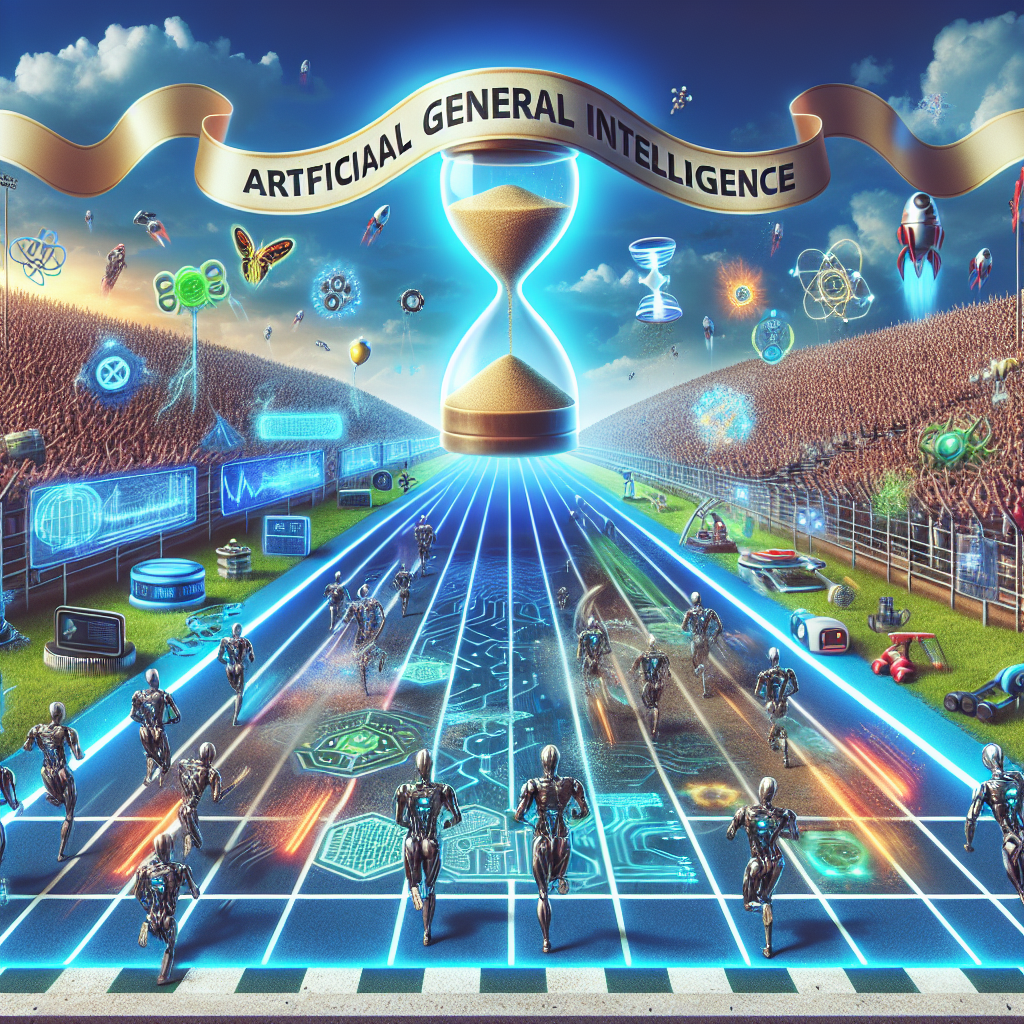The Race to Achieve Artificial General Intelligence: Who’s Leading the Charge?
In recent years, the field of artificial intelligence (AI) has seen exponential growth and development. From self-driving cars to virtual assistants, AI has become an integral part of our daily lives. However, there is still one major challenge that the field has yet to overcome: achieving artificial general intelligence (AGI).
AGI refers to a type of AI that can perform any intellectual task that a human can do. This includes tasks such as reasoning, problem-solving, and understanding natural language. While current AI systems are very good at performing specific tasks, they lack the ability to generalize and adapt to new situations in the way that humans can.
The race to achieve AGI is a highly competitive one, with tech giants, research institutions, and startups all vying to be the first to create a truly intelligent machine. In this article, we will explore the current state of AGI research, discuss the key players in the field, and examine the challenges that still need to be overcome.
The Current State of AGI Research
While the concept of AGI has been around for decades, significant progress has only been made in recent years. This is largely due to advances in machine learning, neural networks, and computational power. Researchers have developed sophisticated AI systems that can perform tasks such as image recognition, speech recognition, and natural language processing with a high degree of accuracy.
However, these systems are still far from achieving true AGI. They lack the ability to reason, understand context, and learn from experience in the same way that humans can. In order to achieve AGI, researchers need to develop AI systems that can not only perform specific tasks, but also generalize and adapt to new situations.
Key Players in the Race to AGI
Several organizations are at the forefront of AGI research, each bringing their own unique strengths and approaches to the table. Here are some of the key players in the race to achieve AGI:
1. Google DeepMind: DeepMind, a subsidiary of Alphabet Inc., is one of the leading research labs in the field of AI. They are known for developing AlphaGo, the AI system that defeated the world champion Go player in 2016. DeepMind is currently working on developing AI systems that can reason, plan, and learn in a more human-like way.
2. OpenAI: Founded by Elon Musk and Sam Altman, OpenAI is a research lab dedicated to advancing AI in a safe and beneficial way. They are known for developing GPT-3, a language model that can generate human-like text. OpenAI is working on developing AI systems that can perform a wide range of tasks and learn from limited data.
3. IBM: IBM has been a pioneer in the field of AI for decades. They are known for developing Watson, the AI system that won the quiz show Jeopardy! in 2011. IBM is currently working on developing AI systems that can reason, understand natural language, and learn from experience.
4. Microsoft: Microsoft has been investing heavily in AI research in recent years. They are known for developing the language model Turing-NLG, which can generate human-like text. Microsoft is working on developing AI systems that can perform a wide range of tasks and adapt to new situations.
Challenges in Achieving AGI
While significant progress has been made in AI research, there are still several challenges that need to be overcome in order to achieve AGI. Some of the key challenges include:
1. Generalization: Current AI systems excel at performing specific tasks, but they struggle to generalize and adapt to new situations. In order to achieve AGI, researchers need to develop AI systems that can learn from experience and apply their knowledge to new tasks.
2. Reasoning: Humans are able to reason, plan, and make decisions based on incomplete information. Current AI systems lack this ability, relying instead on vast amounts of labeled data. In order to achieve AGI, researchers need to develop AI systems that can reason, plan, and make decisions in a more human-like way.
3. Common sense: Humans have a basic understanding of the world and can make inferences based on common sense. Current AI systems lack this ability, often making mistakes that seem obvious to humans. In order to achieve AGI, researchers need to develop AI systems that can understand context and make inferences based on common sense.
FAQs
Q: When will AGI be achieved?
A: It is difficult to predict when AGI will be achieved, as it depends on a wide range of factors such as advances in technology, research funding, and collaboration between researchers. Some experts believe that AGI could be achieved within the next few decades, while others believe it could take much longer.
Q: What are the potential benefits of AGI?
A: AGI has the potential to revolutionize almost every aspect of society, from healthcare to transportation to education. AGI could help us solve some of the world’s most pressing problems, such as climate change, poverty, and disease. However, it also raises ethical and societal concerns that need to be addressed.
Q: What are the potential risks of AGI?
A: AGI has the potential to have both positive and negative impacts on society. While AGI could help us solve complex problems and improve our quality of life, it also raises concerns about job displacement, privacy, and autonomous weapons. Researchers and policymakers need to work together to ensure that AGI is developed and deployed in a safe and ethical manner.
In conclusion, the race to achieve AGI is a complex and challenging one, with many organizations working tirelessly to be the first to create a truly intelligent machine. While significant progress has been made in recent years, there are still many challenges that need to be overcome in order to achieve AGI. By addressing these challenges and working together, researchers can pave the way for a future where AI systems can reason, learn, and adapt in a more human-like way.

